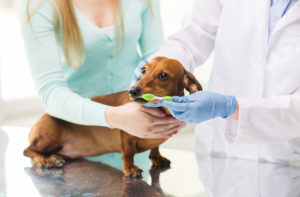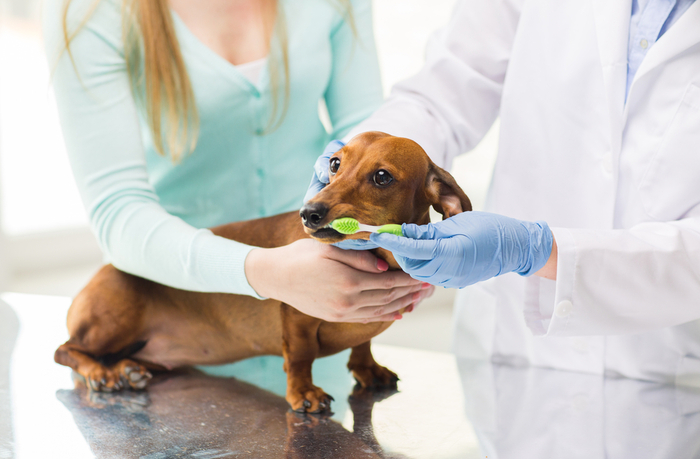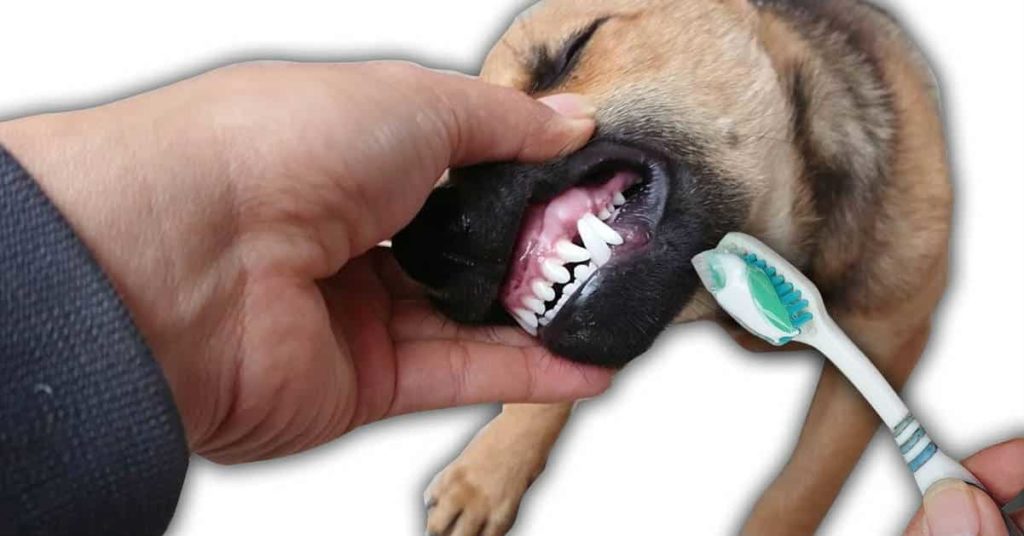
Taking care of your dog’s dental health is essential for their overall well-being. Just like humans, dogs can suffer from dental problems such as gum disease, tooth decay, and bad breath. Neglecting your dog’s dental hygiene can lead to pain, discomfort, and even more serious health issues. In this article, we will provide you with valuable tips and information on how to maintain your dog’s dental health and ensure a happy and healthy smile.
Understanding the Importance of Maintaining your Dog’s Dental Health
A healthy mouth is crucial for your dog’s overall health. Poor dental hygiene can lead to a range of problems, including:
- Gum Disease: Gum disease is one of the most common dental problems in dogs. It starts with the buildup of plaque and tartar, which can cause inflammation and infection in the gums. If left untreated, gum disease can lead to tooth loss and even impact your dog’s vital organs.
- Tooth Decay: Just like humans, dogs can develop cavities. Tooth decay can cause pain, discomfort, and difficulty eating.
- Bad Breath: If your dog has persistent bad breath, it could be a sign of underlying dental issues. Bad breath is often caused by the buildup of bacteria in the mouth.
- Systemic Infections: Dental problems can lead to systemic infections, which can affect your dog’s overall health and potentially cause serious complications.
Now that we understand the importance of dental health for dogs, let’s explore some practical tips to maintain their oral hygiene.
Regular Brushing Your Dog’s Teeth
Brushing your dog’s teeth is one of the most effective ways to prevent dental problems. Here’s how you can do it:
- Choose the Right Toothbrush and Toothpaste: Use a toothbrush specifically designed for dogs. You can find them at pet stores or online. Additionally, use toothpaste formulated for dogs, as human toothpaste can be toxic to them.
- Introduce the Toothbrush Gradually: Start by getting your dog used to the toothbrush. Let them sniff it, and gradually introduce it by rubbing their gums with your finger. This will help them get accustomed to the sensation.
- Use Positive Reinforcement: Make the toothbrushing experience positive for your dog. Reward them with treats or praise after each session.
- Brush Gently and Thoroughly: Hold the toothbrush at a 45-degree angle and brush in circular motions. Focus on the outer surfaces of the teeth, as this is where plaque tends to accumulate. Be gentle and take your time to ensure a thorough cleaning.
- Make it a Routine: Aim to brush your dog’s teeth at least two to three times a week. Consistency is key to maintaining their dental health.
Dental Chews and Toys

In addition to regular brushing, dental chews and toys can help keep your dog’s teeth clean. These products serve as natural toothbrushes, as they help remove plaque and tartar buildup. Here are some options to consider:
- Dental Chews: Look for dental chews specifically designed to promote oral health. These chews are usually made of a durable material that helps scrape away plaque. Be sure to choose an appropriate size for your dog and supervise them while they chew.
- Dental Toys: There are various dental toys available that can help clean your dog’s teeth while providing them with mental stimulation. Look for toys with ridges or nubs that can help remove plaque. Avoid toys that are too hard, as they may cause tooth fractures.
- Raw Bones: Raw bones can also help keep your dog’s teeth clean. They act as natural toothbrushes and provide a satisfying chewing experience. However, be cautious when giving your dog bones and choose ones that are appropriate for their size and breed. Always supervise your dog while they chew on bones to prevent choking or tooth fractures.
Regular Dental Check-ups
Regular dental check-ups are crucial for maintaining your dog’s dental health. Just like humans, dogs should have their teeth examined by a veterinarian regularly. Here’s what you need to know:
- Schedule Regular Vet Visits: Consult with your veterinarian to determine how often your dog should have dental check-ups. This can vary depending on their age, breed, and overall dental health.
- Professional Dental Cleaning: In some cases, your veterinarian may recommend professional dental cleaning. This procedure involves removing plaque and tartar buildup under anesthesia. It allows for a thorough cleaning of your dog’s teeth and is essential for preventing dental problems.
- Dental X-rays: During a dental check-up, your veterinarian may also perform dental X-rays to check for any underlying issues or abnormalities that may not be visible to the naked eye.
- Follow Vet’s Recommendations: Your veterinarian will provide you with personalized recommendations for your dog’s dental care. Follow their advice regarding brushing frequency, dental chews, and any additional treatments or precautions.
Diet and Nutrition

A balanced diet plays a significant role in your dog’s dental health. Here are some dietary considerations to keep in mind:
- Choose High-Quality Food: Opt for high-quality dog food that is specifically formulated to promote dental health. Look for options that have been approved by veterinary dental associations.
- Avoid Sticky or Sugary Treats: Sticky or sugary treats can contribute to plaque and tartar buildup. Limit these types of treats and opt for dental-specific treats instead.
- Consider Dental Diets: Some dog food brands offer dental diets that are specially formulated to reduce plaque and tartar. These diets often have a unique kibble shape or texture that helps clean the teeth as your dog chews.
Additional Dental Care Tips for Your Dog
Here are a few additional tips to help maintain your dog’s dental health:
- Monitor Water Intake: Encourage your dog to drink plenty of water, as it helps wash away food particles and bacteria from their mouth.
- Avoid Human Foods: Certain human foods can be harmful to your dog’s dental health. Avoid feeding them sugary or starchy foods, as these can contribute to plaque buildup.
- Regularly Inspect their Mouth: Take the time to inspect your dog’s mouth regularly. Look for signs of red or inflamed gums, loose teeth, or any unusual growths. If you notice anything concerning, consult with your veterinarian.
- Be Mindful of Chew Toys: While chew toys can help clean your dog’s teeth, be cautious of using hard toys that may cause tooth fractures. Choose toys specifically designed for dental health.
Conclusion
Maintaining your dog’s dental health is essential for their overall well-being. By following these tips, you can help prevent dental problems and ensure your dog has a healthy and happy smile. Remember to brush their teeth regularly, provide dental chews and toys, schedule regular dental check-ups, and provide a balanced diet. With proper dental care, you can ensure that your furry friend enjoys a lifetime of good oral health.

